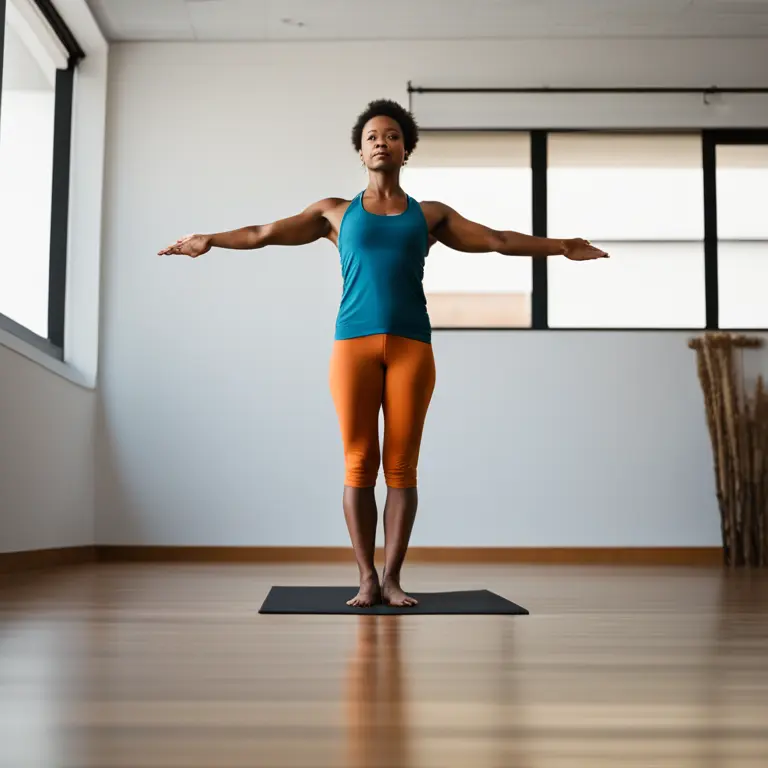
Stand to Meditate: The Vertical Path to Mindfulness
Discover the unique benefits and methods of standing meditation—a practice enhancing focus, balance, and energy flow.
article by Hina Kurosawa
The Foundation of Standing Meditation
Meditation is traditionally practiced in seated or supine positions, but many are unaware of the potent alternative—standing meditation. This vertical form of meditation, historically rooted in martial arts and various spiritual traditions, offers a refreshing approach to mindfulness and body awareness. By standing, practitioners engage their bodies differently, promoting a transfer of energy and stability that is unique to the upright position. With growing interest in holistic and embodied practices, standing meditation is poised to gain popularity for its accessibility and the distinct benefits it offers.

Physical Advantages of the Upright Pose
The benefits of standing meditation are multifaceted, with a distinct emphasis on the physical body. As practitioners root their feet firmly to the ground and align their posture, they often report enhanced proprioception and a natural reinforcement of muscular structures. This position facilitates a deeper understanding of weight distribution and balance, crucial components for wellness. Furthermore, the act of standing stimulates circulation and can be particularly invigorating, making it an excellent option for those seeking to incorporate mindful movement into sedentary routines or to kickstart their day with intention.

Mental Clarity Through Verticality
Mentally, standing meditation can lead to heightened levels of concentration and alertness. The need to maintain balance in the standing position engages the mind and can help sharpen focus, a valuable skill for navigating the complex and fast-paced world of 2024. Unlike seated meditation, which can induce drowsiness, the upright stance keeps meditators more awake and engaged with their surroundings, making it a practical choice for integrating brief meditative moments into one's daily life.

Incorporating Standing Meditation
To practice standing meditation, find a quiet space where interruptions are minimal. Begin by standing with feet shoulder-width apart, knees slightly bent, and arms at your sides or in a comfortable position. Close your eyes or keep a soft gaze and start focusing on your breath. Allow your weight to settle evenly across both feet, imagining roots growing from the soles into the earth. Maintain a straight but relaxed posture and observe any sensations that arise. Start with a few minutes, gradually increasing the duration as your comfort with the practice grows.

Compatibility with Other Practices
Standing meditation complements various disciplines, such as yoga, martial arts, or Qi Gong, and can enhance the experiential aspect of astrology, palmistry, and energy work. It connects the practitioner with the earthly, material plane, potentially grounding metaphysical insight into physical experience. For those interested in biorhythms and personal compatibility, standing meditation offers a platform to tune into one's internal rhythms and energies, which can be insightful when evaluating personal, interpersonal, and cosmic alignments.
Adaptability for Varying Abilities
An inclusive practice, standing meditation is adaptable for people with different physical abilities and ages. It respects the body's current state while gently encouraging an active form of stillness. For those who find sitting uncomfortable or who are looking to meditate in spaces not conducive to laying down, standing proves to be a versatile alternative, fostering inclusivity within the meditative community and helping to break down barriers to mindfulness practices.
Published: 1/15/2024
Modified: 1/15/2024
More predictions
Come back here soon to learn more about yourself and your future


Healing Through Mindfulness: Meditation & Trauma Recovery
Mindfulness meditation offers a powerful tool for individuals seeking solace and healing from traumatic experiences. Discover how this practice can aid in the journey towards inner peace.


Easing Loneliness with Mindfulness Meditation
Explore how mindfulness meditation can provide solace and connection to alleviate the feelings of loneliness.


Discovering Life with Meditation Mantras
Delve into the transformative power of meditation mantras to harmonize your mind, body, and spirit for a tranquil existence.